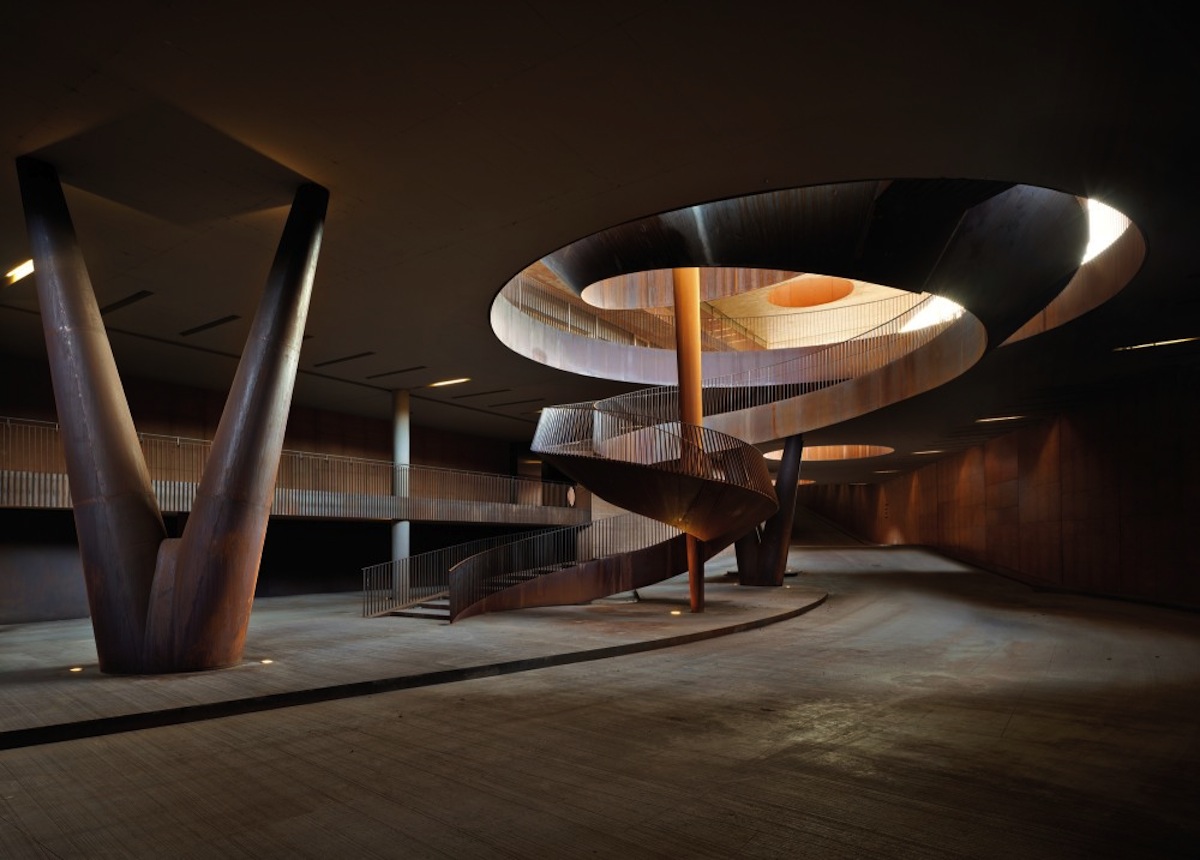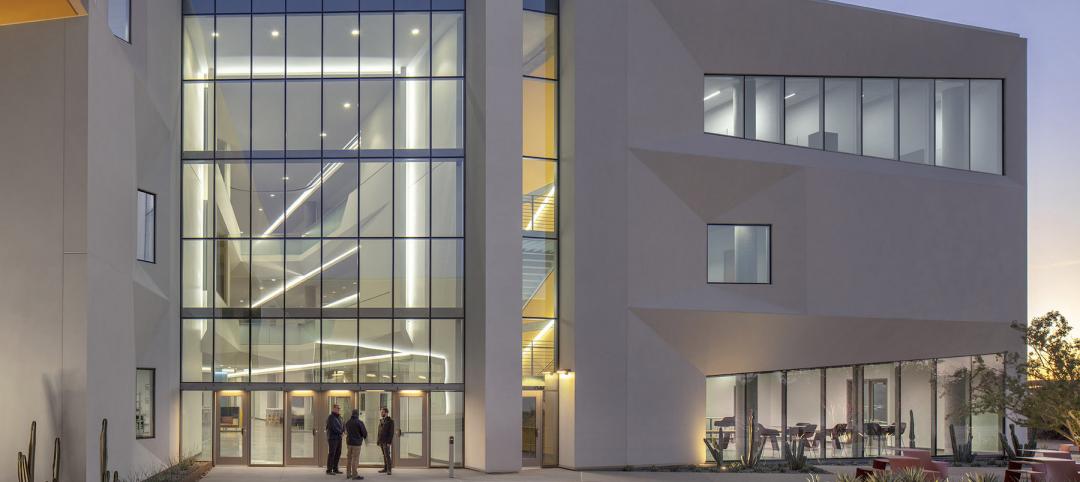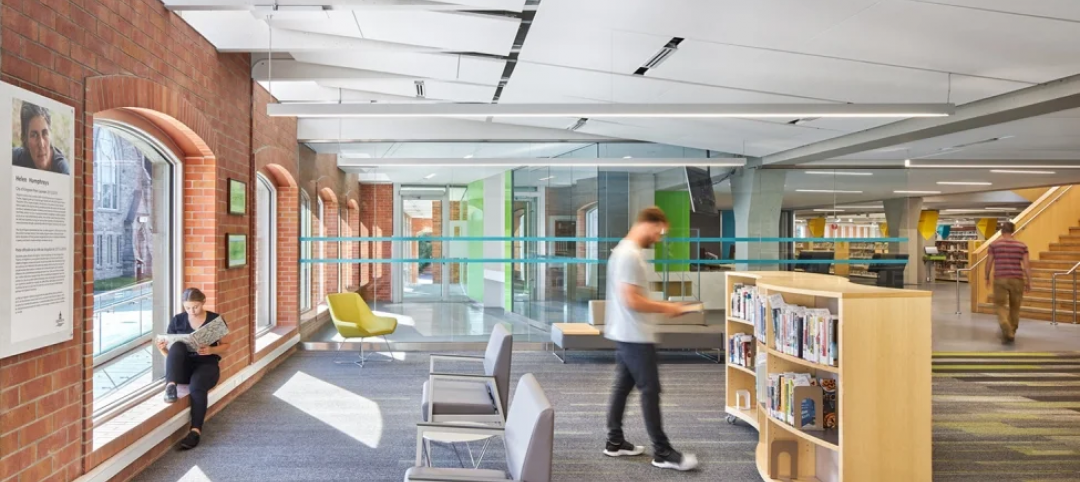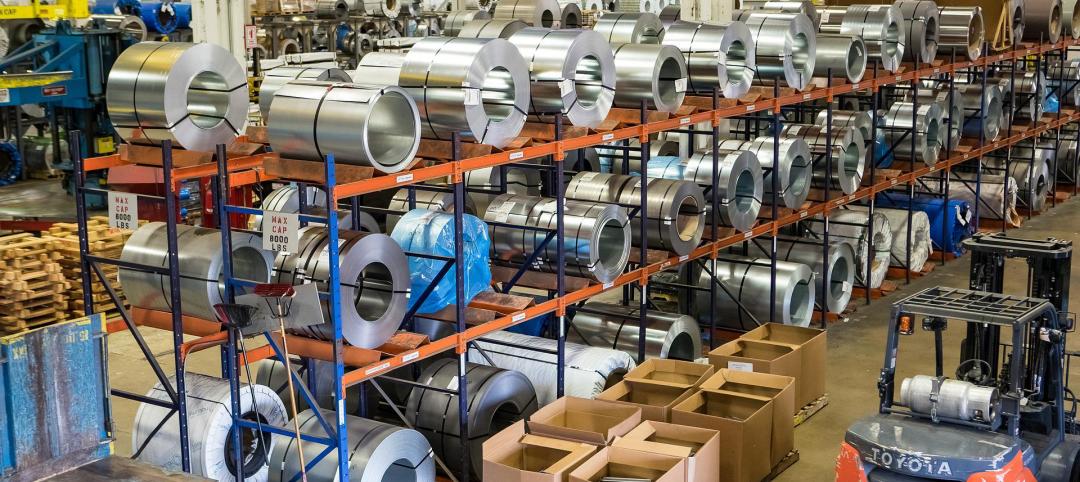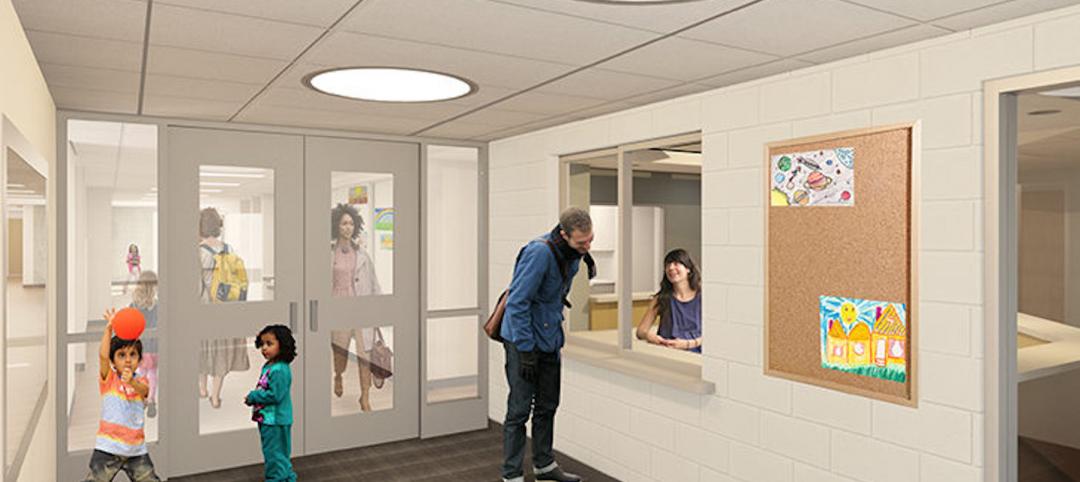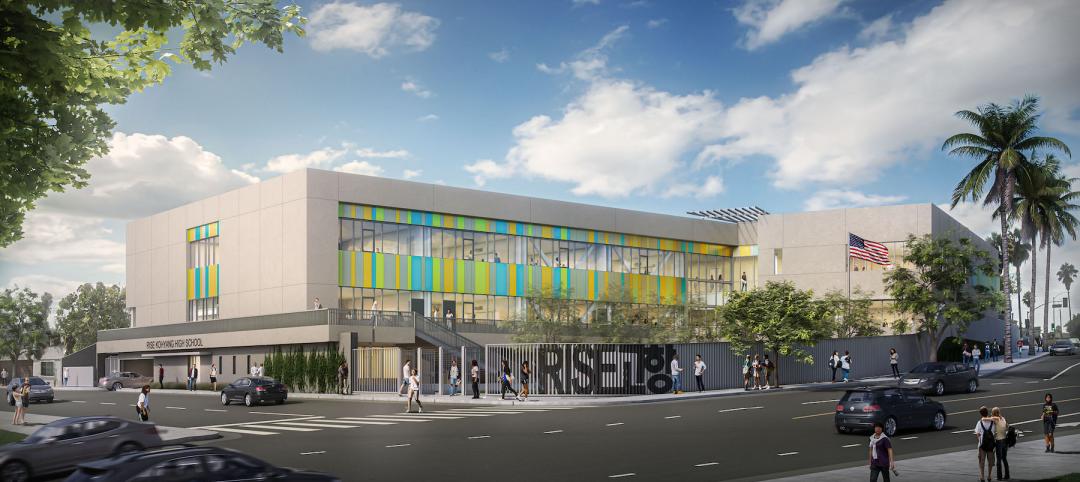The five finalists for the 2015 European Union Prize for Contemporary Architecture, or the Mies van der Rohe award. The finalists were chosen from a shortlist of 40 projects and include a sunken museum and a crystalline concert hall.
Considered to be some of the best works completed by European architects in the previous two years, the projects are in the running for a prize of more than $65,000.
The five finalists for the Mies van der Rohe award are:
- Philharmonic Hall Szczecin designed by Estudio Barozzi Veiga in Szczecin, Poland
- The Saw Swee Hock Student Centre by O'Donnell + Tuomey at the London School of Economics in London
- Ravensburg Art Museum designed by Lederer Ragnarsdóttir Oei in Ravensburg, Germany
- Danish Maritime Museum designed by Bjarke Ingels Group in Helsingør, Denmark
- Antinori Winter by Archea Associati in San Casciano Val di Pesa, Florence, Italy
The architects will present their projects to the jury on May 7.
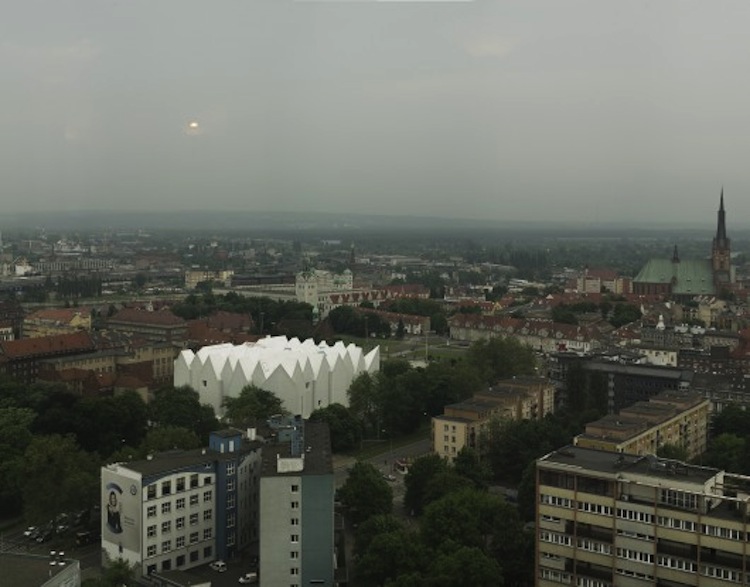 Philharmonic Hall Szczecin designed by Estudio Barozzi Veiga in Szczecin, Poland. Photo by Simon Menges
Philharmonic Hall Szczecin designed by Estudio Barozzi Veiga in Szczecin, Poland. Photo by Simon Menges
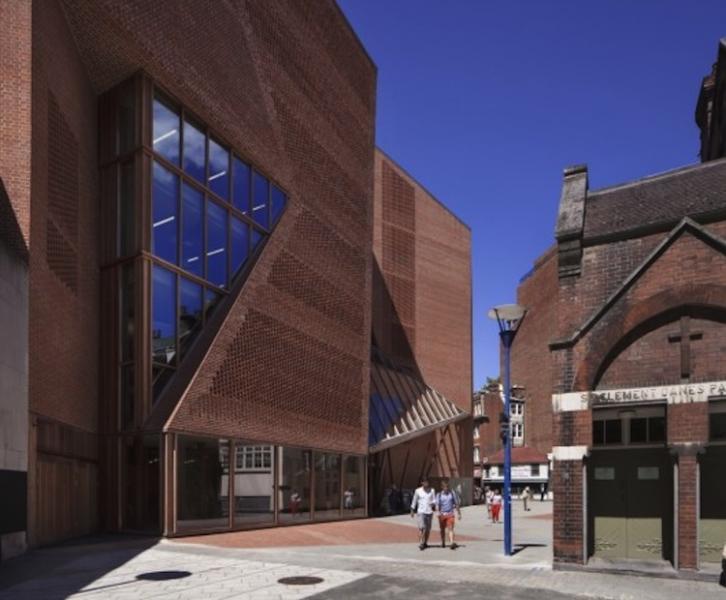 The Saw Swee Hock Student Centre by O'Donnell + Tuomey at the London School of Economics in London. Photo by Alex Bland
The Saw Swee Hock Student Centre by O'Donnell + Tuomey at the London School of Economics in London. Photo by Alex Bland
 Ravensburg Art Museum designed by Lederer Ragnarsdóttir Oei in Ravensburg, Germany. Photo by Roland Halbe
Ravensburg Art Museum designed by Lederer Ragnarsdóttir Oei in Ravensburg, Germany. Photo by Roland Halbe
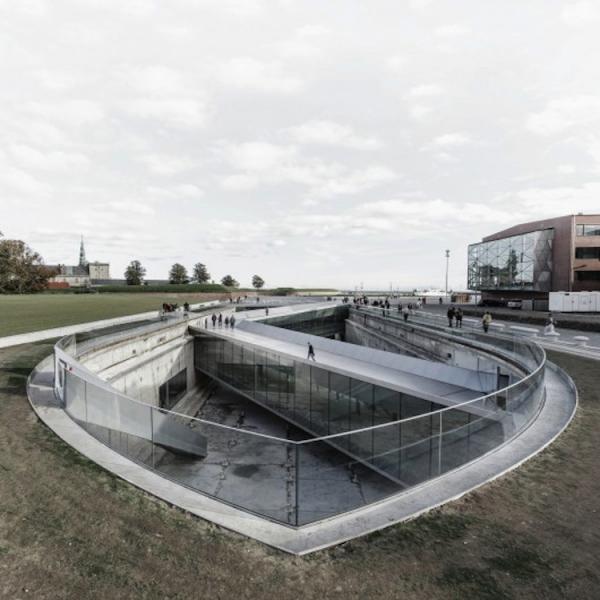 Danish Maritime Museum desinged by Bjarke Ingels Group in Helsingør, Denmark. Photo by Rasmus Hjortshoj
Danish Maritime Museum desinged by Bjarke Ingels Group in Helsingør, Denmark. Photo by Rasmus Hjortshoj
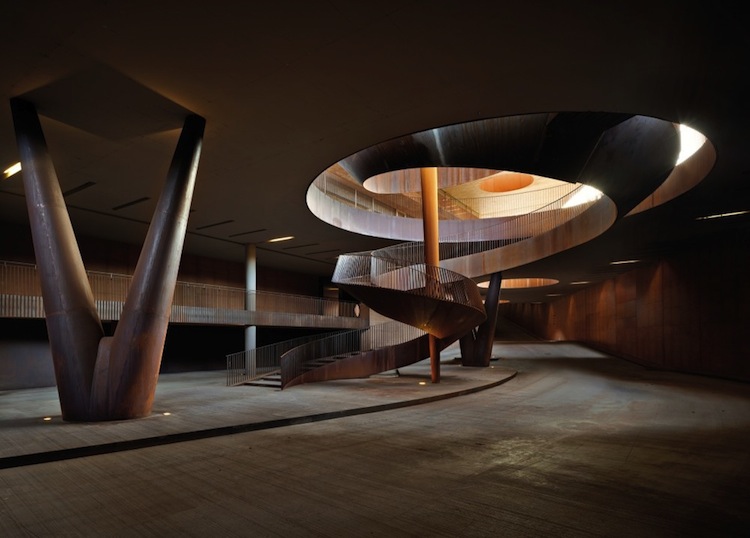 Antinori Winter by Archea Associati in San Casciano Val di Pesa, Florence, Italy. Photo by Pietro Savorelli
Antinori Winter by Archea Associati in San Casciano Val di Pesa, Florence, Italy. Photo by Pietro Savorelli
Related Stories
Healthcare Facilities | Jun 22, 2022
Arizona State University’s Health Futures Center: A new home for medical tech innovation
In Phoenix, the Arizona State University (ASU) has constructed its Health Futures Center—expanding the school’s impact as a research institution emphasizing medical technology acceleration and innovation, entrepreneurship, and healthcare education.
Market Data | Jun 22, 2022
Architecture Billings Index slows but remains strong
Architecture firms reported increasing demand for design services in May, according to a new report today from The American Institute of Architects (AIA).
Green | Jun 22, 2022
World’s largest commercial Living Building opens in Portland, Ore.
The world’s largest commercial Living Building recently opened in Portland, Ore.
Multifamily Housing | Jun 21, 2022
Two birds, one solution: Can we solve urban last-mile distribution and housing challenges at the same time?
When it comes to the development of both multifamily housing and last-mile distribution centers, particularly in metropolitan environments, each presents its own series of challenges and hurdles. One solution: single-use structures.
Libraries | Jun 21, 2022
Kingston, Ontario, library branch renovation cuts energy use to 55% of benchmark
A recent renovation of the Kingston (Ontario) Frontenac Public Library Central Branch greatly boosted energy and water efficiency while making the facility healthier and safer.
Building Materials | Jun 20, 2022
Early-stage procurement: The next evolution of the construction supply chain
Austin Commercial’s Jason Earnhardt explains why supply chain issues for the construction industry are not going to go away and how developers and owners can get ahead of project roadblocks.
Building Team | Jun 20, 2022
Andres Caballero Appointed President of Uponor North America
Uponor Corporation (Uponor) has named Andres Caballero president of its Building Solutions – North America division and a member of the Executive Committee at Uponor.
| Jun 20, 2022
An architectural view of school safety and security
With threats ranging from severe weather to active shooters, school leaders, designers, and security consultants face many challenges in creating safe environments that allow children to thrive.
School Construction | Jun 20, 2022
A charter high school breaks ground in L.A.’s Koreatown
A new charter school has broken ground in Los Angeles’ Koreatown neighborhood.
Building Team | Jun 17, 2022
Data analytics in design and construction: from confusion to clarity and the data-driven future
Data helps virtual design and construction (VDC) teams predict project risks and navigate change, which is especially vital in today’s fluctuating construction environment.


